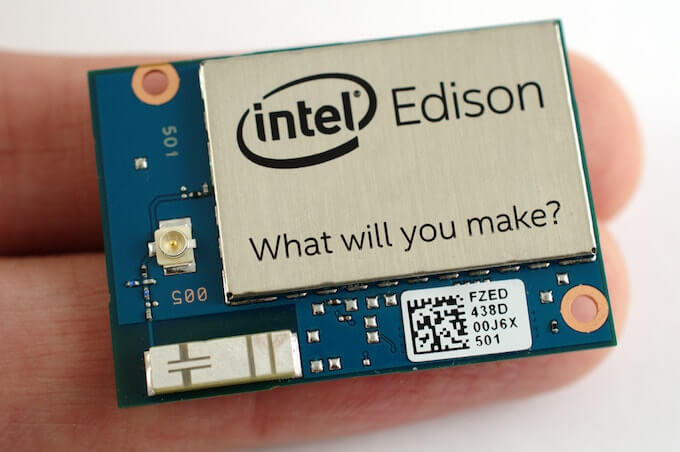Whether you are an expert or a beginner in building prototypes with small powerful computing boards, it’s always good to take time and choose the best module to get started.
Today, in this post we present to you the Intel Edison Compute Module and try and convince you to start developing using this high-performance module if you haven’t done that already.
With the dimensions of 35.5 x 25 x 3.9mm, similar to that of a postage stamp Intel Edison has attracted quite a lot of enthusiasts of the IoT and wearables community since its release in 2014.
It’s not only the tiny size that gets everyone craving but also the low power consuming powerful core best suited for rapid prototyping.
ESLOV IoT Invention Kit Is Arduino’s Grand Entry Into IoT Market
The idea behind ESLOV IoT Invention kit from Arduino is to connect all kinds of sensors together to work together and allow us to have all kinds of
Intel Edison Module – Specifications
Intel Edison with its Intel Atom 22nm dual-core 500 MHz processor and the Intel Quark System on Chip (SoC) running at 100MHz outclass any other modules available.
In addition, it has a 1GB DDR3 memory, 4GB eMMC flash storage, excellent connectivity (integrated Wi-Fi and Bluetooth) and supports 40 GPIOs with several possibilities of configuration in a 70-pin Hirose connector.
Intel Edison Block Diagram
All this comes with extremely low power consumption, as is the main characteristic of the Intel Edison. There’s some icing on the cake too: Intel has developed two extension boards specifically for the Edison module. These are the Mini Breakout Board and the Arduino Board for Edison.
The Mini Breakout board provides easy access to GPIOs and has the same small form factor of the Intel Edison module. And the Arduino Breakout broad is for using Edison with shields designed for Arduino.
These shields are simply interfacing boards that extend the functionality of the master board. A lot of such shields are available for Arduino boards meaning all of those can be used to add extra features.
The Intel Edison platform runs Arduino and C/C++ with support for Node.js, Python, RTOS and visual programming tools coming soon, as announced by Intel.
For enthusiasts particularly indulged in wearables, Intel IoT Analytics contains valuable resources to collect and analyze sensory data from the Intel Edison for analysis and future manipulation.
Image Credits: HackerBoards, Flickr
